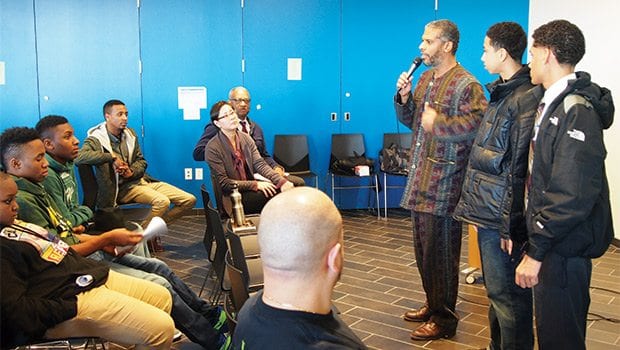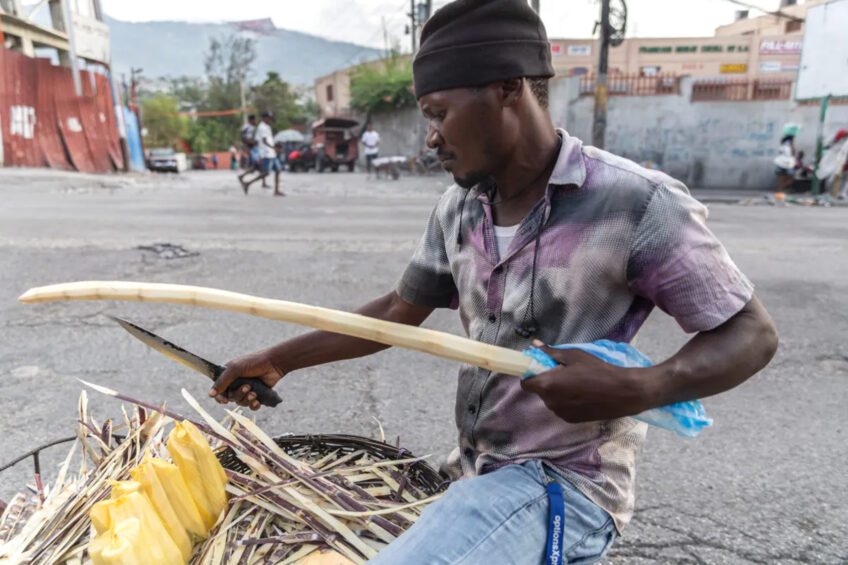
More than 200 students, educators and school administrators gathered in Boston last month to share strategies and insights on the challenges facing black and Latino students in the nation’s education system.
The two-day meeting, convened by the Coalition of Schools Educating Boys of Color and attended by Boston Public Schools Superintendent Tommy Chang and other city officials, gave Boston students a chance to deliver policy recommendations on how to improve their learning experience.
Students weighed in during the conference with suggestions ranging from changes to disciplinary rules that limited their access to bathrooms to calls for textbooks.
COSEBOC is a national organization founded by former Cambridge Rindge and Latin School principal Ron Walker. Its aim is to change the cultural assumptions and norms that help produce lower outcomes for black and Latino students.
“The challenge is to eradicate the overarching narrative that presumes that if you’re black or Latino, you come with certain baggage that people associate with being black or Latino,” Walker said. “You think about suspensions and expulsions. You think about the number of students who are in special education.”
Across the country, black and Latino students are suspended at higher rates than white students, from pre-school through high school. In Massachusetts, blacks are three times as likely to be suspended as white students who commit the same disciplinary infractions, according to data compiled by the Lawyers Committee for Civil Rights and Equal Justice Under Law.
In Boston, educational disparities begin to appear as students branch off into advanced work classes, special classes offered at some BPS schools starting in 4th grade that help prepare students for the city’s competitive exam schools. While one in five white students in the system enrolls in advanced work classes, only one in 20 black students does so, noted Roseanne Tung, who presented research during the COSEBOC conference that she conducted for the Annenberg Foundation. While half of all white and Asian high school students pass the Massachusetts Core Curriculum — a set of standards educators say students need to meet to be successful in college — just four in 20 black students do, and only three in 20 Latinos, Tung said.
Many teachers Tung interviewed showed little understanding of the cultural backgrounds of the students they are teaching, she said.
“They would say, ‘We don’t see race,’” Tung said. “’Color doesn’t matter. We treat everybody the same.’ If you take a color-blind approach, you don’t use the instructional tools that serve students’ needs.”
Tung attributed teachers’ lack of cultural competency to ignorance.
“In one elementary school, teachers said they didn’t have any Latino students,” she told the gathering. “But the school is one-third Latino.”
At another school, she noted that teachers who wanted to honor Latino students’ heritage staged a Cinco de Mayo celebration.
“There are no Mexican students in that school,” Tung said.
Schools and organizations that work with Walker’s group share strategies for creating engaging curricula for black and Latino students. Sociedad Latina Executive Director Alexandra Oliver-Dávila is a COSEBOC board member who has been working with the organization to make sure black and Latino boys are able to weigh in on education and youth policy in the city.
“When I first started at Sociedad, one of our biggest problems was recruiting young men,” she said.
After the organization added music and video programs, it was able to attract more boys. The organization then began to grapple with the problems those boys faced, such as the high number of suspensions.
Oliver-Dávila, who also was appointed this month to the Boston School Committee, is currently working with COSEBOC to bring together middle and high school students to advocate for the concerns black and Latino students. This advocacy will be in conjunction with the Boston school department’s assistant superintendent for Opportunity and Achievement Gap, Colin Rose.
“Our goal is to convene an advisory committee of young men,” she said.






